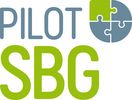Projects
As a research group, we are involved in the following projects:
Methane Fuel from Bioresources and Hydrogen

The aim of the project is the construction and operation of a pilot plant that primarily combines the anaerobic fermentation of selected residual and waste materials with the subsequent methanation of the resulting biogas. Upstream and downstream of this core process are innovative technologies designed to enhance resource efficiency and provide valuable by-products. The hydrogen used in the methanation process significantly increases the overall methane yield.
As a research group, we are investigating the treatment of the resulting fermentation residues and their further processing into high-quality fertilizer products through a multi-stage separation cascade.
For more information, please visit the project website.
Funded by: Bundesministerium für Digitales und Verkehr
Duration: 2018 till 2026
Turning Regional Residues into Chemicals for the Bioeconomy
How can chemicals for the bioeconomy be produced on a large scale from regional residual materials? This question is being addressed by a research team from the German Biomass Research Center (DBFZ) and the Helmholtz Centre for Environmental Research (UFZ), together with industry partners, in the newly launched project “CapUp.” The goal of this project, funded by the Federal Ministry for Economic Affairs and Climate Action, is to scale up an already developed process for producing caproic and caprylic acid for the chemical industry using a multi-purpose demonstration plant.
For more detailed information, please visit the project website.
Funded by: Bundesministerium für Wirtschaft und Klimaschutz
Hemicellulose-Based Coating Solutions

The HemiCoat project focuses on the valorization of hemicellulose by-products (hydrolysates) from pulp production, as well as from other agricultural lignocellulosic biomass sources, to produce high-value chemicals for sustainable coatings, adhesives, and functional additives. The main objectives of the project are: (i) the recovery and purification of monosaccharides and hemicellulose oligomers from industrial side streams; (ii) the use of monomeric sugars (e.g., xylose) from hydrolysates in fermentation to produce itaconic acid as a building block for the chemical synthesis of surfactants; and (iii) the development of sustainable adhesives based on oligomers.
In addition, the potential of industrial hydrolysates in Germany, Belgium, and across the EU will be assessed. Based on project data, an industrial-scale simulated process will be developed to evaluate its economic and environmental potential, including a life cycle assessment (LCA) and market analysis. For further information, please visit the project website.
Funded by: Collective Research Networking (Cornet), german funding by Bundesministerium für Wirtschaft und Klimaschutz
Duration: 09/2024 till 08/2026
Turning Wood Residues into Sustainable, Bio-Based, and Recyclable Products
NEXT-STEP is a European research project dedicated to the development of sustainable, bio-based materials derived from wood production residues. The aim is to produce innovative chemical building blocks such as aMVL, 3MdVL, and 3MPD on a large scale and to demonstrate their application in products such as shoe soles, insulation materials, and polyurethane foams.
The project takes a holistic approach—from sustainable raw materials and resource-efficient production processes to market-ready end products. Key focus areas include environmental compatibility, recyclability, and social acceptance.
By bringing together 12 partners from 8 countries, NEXT-STEP makes a significant contribution to reducing dependence on fossil resources and advancing a circular economy.
For more information, please visit the official NEXT-STEP website.
Funded by Circular Bio-based Europe Joint Undertaking.
Duration: 06/2024 till 05/2028
Peatland Restoration and Paludiculture: Uniting Climate Action and Value Creation
The MOOReturn Project aims to combine peatland protection with value creation through the utilization of peatland biomass via paludiculture. As part of the project, previously drained peatlands will be revitalized and water levels in already re-wetted areas around Malchin (Mecklenburg Lake District, Germany) will be optimized. In the long term, the project seeks to demonstrate a residue-free processing method for peatland biomass on an industrial scale in the Malchin region. This will include evaluating its economic and ecological viability while considering societal aspects.
The TUP research group focuses on two key areas: Process water treatment to recover dischargeable water and concentrated nutrients, and development of by-product and residue recycling, with the goal of enabling a low-waste processing method and producing a granulated fertilizer.
Funded by: Fachagentur Nachwachsende Rohstoffe e.V. (FNR)
Duration: 06/2023 till 05/2033
Green Transformation of Petrochemicals
The petrochemical industry is undergoing a fundamental transformation—moving away from fossil resources toward a climate-neutral, circular system. The GreenFeed project, led by the Wuppertal Institute in collaboration with the Karlsruhe Institute of Technology (KIT) and the German Biomass Research Center (DBFZ), explores possible transformation pathways.The project aims to use scenario development and technology assessments to demonstrate how carbon circularity and the use of renewable feedstocks can contribute to resource efficiency and greenhouse gas neutrality. An industrial advisory board—with stakeholders from petrochemicals, waste management, and the bioeconomy—as well as topic-specific workshops, accompany the project.
Our contribution focuses on evaluating the technical, economic, and ecological aspects and compiling a special issue on market-relevant biopolymers.
For further information, please visit the project website.
Duration: 02/2022 till 02/2025
Funded by Bundesministerium für Wirtschaft und Klimaschutz